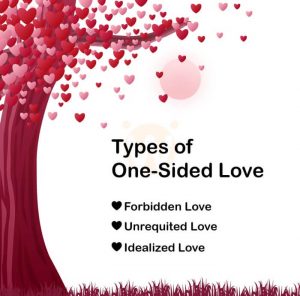Causes, Risk Factors and the Ways to Cope Chronic Grief | Prolonged Grief
By Prapoorna M
Last Updated: November 27, 2021
Grief is a natural emotion that gets triggered when we experience a severe emotional trauma. Chronic grief or prolonged grief is the state of having grief for a longer time period, while acute grief stays for a shorter period. Chronic grief results in suffering for long time which disturbs the sufferer in all ways. The experience of chronic grief is related to the physical and emotional relation of the sufferer to the subject. The risk factors of such serious symptoms of chronic grief depend on the factors such as
- The physical and emotional health of the sufferer
- The relationship between the bereaved and their loved one
- The nature of the death
For example, when the relationship with the deceased was a contentious or a strained one, the loved ones feel responsible for not having the issues resolved before he/she was fine. This induces guilt and leads to deep grief. It reminds them all the chances of solving the issue they had had. They find themselves guilty for not being active in speaking on it and making the terms better, for he’s gone forever.
In the same way, Parents who have lost their child are at a significantly higher risk of divorce compared to couples that have not, as the guilt and grief haunt them a lot. Such parents are also at increased risk for a decline in emotional health. Some of them get psychiatrically hospitalized following the loss. Mostly, this is a particular risk for mothers who have lost a child. Having a word with an expert helps them get out of that emotional trauma.
Signs and symptoms of Grief
In addition to the emotional pain, symptoms of grief can be physical, social, cultural, or religious in nature.
- Physical symptoms in such cases can range from mild sleep and appetite problems to having heart attacks.
- Social symptoms of bereavement include isolation from the other loved ones around them and difficulty functioning at work, school, and even at home.
It is tough for children and adolescents, to handle the death of a parent or other loved one, as the circumstances create stress that they believe can be pacified only in the presence of the deceased. They miss them so much and the grief could be really overwhelming for them. Such reactions usually reflect the particular developmental stage of the child or adolescent.
For example, the loss of a loved one affects an infant highly that they tend to involve crying and being more irritable or clingy to express the loss as they cannot talk yet. The symptoms such as loss of sleep and appetite and noticeable decrease in activity levels also indicate their missing. Some kids also display the habit of being more watchful of (vigilant toward) their surroundings, following such mishaps.

Since preschoolers from 3 to 5 years of age begin to be able to remember the one who died but have not yet developed the ability to understand the permanence of death, they may believe they somehow magically caused the death and can make the person come back. This is mostly observed when the grand parents or great-grand-parents pass away that these children keep searching them everywhere and think that they might have gone to some other place. In addition to showing signs of grief that are similar to
infants, they may have more difficulty separating from caregivers.
The early school-aged children, from 6 to 8 years of age, are more likely to understand that death is permanent, compared to younger children. They often feel unreasonable guilt about the death of the loved one and tend to become preoccupied with memories about the departed. These kids try to master the loss they have suffered by talking about it frequently, with the friends and relatives.
The school-aged children from 9 to 11 years of age are quite similar to those of early school-aged children when the symptoms of grief are considered. The older group children feel different from their peers when they experience the loss of their loved ones. They are more vulnerable to a decrease in self-esteem because of their loss. They try to get engrossed in school activities, social, and/or extracurricular activities, in order to defend against their feelings of sorrow.
The grief coping mechanism in young adolescents of 12 to 14 years of age may contain mixed feelings about the deceased individual and they tend to exhibit a wide range of emotions, because of their budding need of independence. They may avoid talking about the loss. All the enduring emotions such as sadness, anxiety and anger, though experienced similar to adults, these older teens tend to deny their feelings of loss to parents but discuss them in detail with their peers.
The burdening grief causes any person to regress emotionally either it maybe a child, an adolescent or an adult. But in their way of coping with the stress and grief, they go back to former behavior and often exhibit lesser mature ways of thinking and behaving.
How do health care professionals assess grief?
It is a common sight when practitioners use paper and pencil survey tests to determine if a person is suffering from grief. But, the assessment is usually made by the health-care professional by asking questions, to assess what symptoms an individual is experiencing. After a talk with the person, they consider assessing whether he or she is suffering from normal grief, complicated grief, or some other issue.
The questions posed tend to explore the emotional, physical, and/or social symptoms of grief of that person. If they are found to be affected, the severity and longevity of the symptoms are found out. The practitioner may also try to determine what stages of the grief process the person has experienced and what stage currently dominates their feelings at the time of the assessment.
How can people cope with grief?
Helping people who are suffering the loss in the best way is always a controversial point. Although there are many forms of support available and help certain individuals, the scientific research showing clear benefits for any particular approach for grief reactions, is nowhere available.
As each approach to grief support is so different, it is hard to scientifically compare one to another. It is unfortunate that the intervention procedures are not consistently reported in publications, and the ways these interventions have been studied are flawed. The grief counseling for uncomplicated grief sufferers works against bereavement recovery. But, there is also a research to the contrary.
The dual process model is a kind of approach which endorses the bereavement process as being the dynamic struggle between the pain of the death of the loved one (loss-oriented) and recovery (restoration-oriented). This model of treatment recommends that bereaved individuals alternate between directly working on their loss (confrontation) and taking a break from (avoidance) that process when appropriate. For couples that are grieving the occurrence of a miscarriage, brief professional counseling has been found to be helpful.
Journaling can be an effective way of management of bereavement rather than just stirring up painful feelings. Though there are no strict rules to the process of journaling, some of the ideas encouraged include limiting the time journaling to 15 minutes per day or less to decrease the likelihood of worsening the grief. The process of writing an imagination on how his or her life will be in a year from the date of the loss and clearly identifying the feelings to allow for easier tracking of the individual’s grieving process, could help the affected cope with the reality.
Ensuring consistent caretaking and frequent interaction with supportive adults can help the children and adolescents cope emotionally with the death of a friend or family member. As discussed, appropriate participation in extracurricular activities in school and involving in some social activities helps the children of school age and older, to push the grief aside. In the same way, maintaining positive relationships with peers helps the teens figure out how to deal with grief.
The adolescents can also be allowed to interact with peers and family than the formal sources of support like their school counselor. All children and teens can benefit from being reassured that they did not cause their loved one to die. Such reassurance can go a long way toward lessening their grief that might affect their development. The children and adolescents have the tendency for blaming themselves and possessing angry feelings they may have harbored against their lost loved one for the death.
The coping techniques and tips for grieving are as different and numerous as there are bereaved individuals. The caring deeds like continuing nutritious and regular eating habits, getting extra rest, and communicating with surviving friends and families are some major ways to ease the grieving process. The extended emotional support can help the aggrieved individual come to terms with their loss.
Anything from reciting comforting prayers or affirmations, to returning to established meal and bedtimes, as well as returning to work or school routines can help grieving individuals regain a sense of normalcy in their lives. When death involves imperfect relationships, involving the imperfect deceased person, then forgiving the deceased can help the bereaved in a long way toward the healing. It is actually surprising that bereavement also leads to enhanced personal development, though involving the painful aspects.
Book your Free Consultation Today
Parent/Caregiver Info:
Client’s Details:
* Error Message









